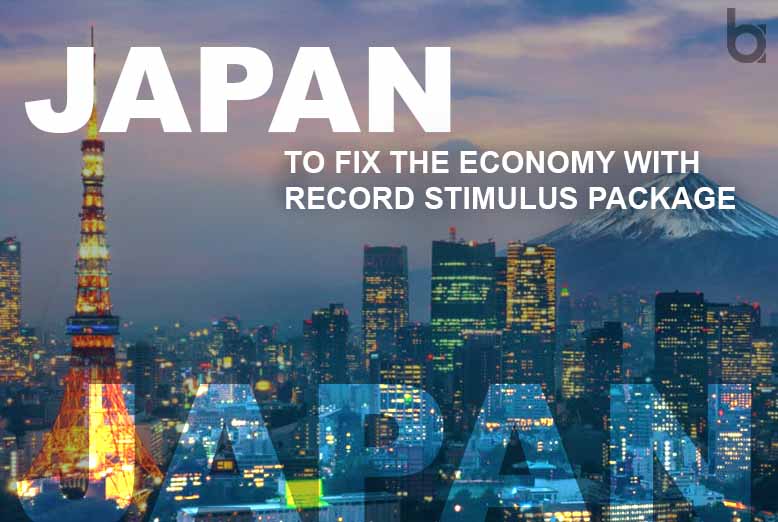Key Highlights:
- Japan’s prime minister unveiled a record 56 trillion yen ($490 billion) stimulus program to help the economy recover from the effects of the coronavirus outbreak.
- According to Kishida and other MPs, the proposal involves providing 100,000 yen ($880) in monetary support to people aged 18 and under.
- Japan has also vowed to increase funding for vaccine development after being chastised for relying on imports for coronavirus vaccinations.
A record stimulus program
Japan’s prime minister unveiled a record 56 trillion yen ($490 billion) stimulus program including cash handouts and assistance to struggling firms, to help the economy recover from the effects of the coronavirus outbreak.
“The package has more than enough content and scale to deliver a sense of security and hope to the people,” Prime Minister Fumio Kishida told reporters.
Kishida’s plan was scheduled for Cabinet approval later in the day, but it still needs legislative approval. Kishida has vowed prompt action, and parliament is scheduled to meet next month.
According to Kishida and other MPs, the proposal involves providing 100,000 yen ($880) in monetary support to people aged 18 and under, as well as assistance to failing enterprises.
Japan’s declining economy
During the pandemic, Japan never went into complete lockdown, and infections remained relatively low, with around 18,000 people dying as a result of COVID-19. However, the world’s third-largest economy was already in decline when the epidemic struck.
As a result of the government’s “state of emergency,” several eateries closed or curtailed their hours, and events and theatres limited audience numbers to avoid social distance. A lack of computer chips and other auto parts made in other Asian countries suffering from major outbreaks and rigorous lockdowns has hampered output at Japan’s manufacturers, particularly Toyota Motor Corp., a key economic player.
The government is considering relaunching the “GoTo Travel” program, which offers discounts at restaurants and retailers to encourage domestic travel. The effort, which began last year, was halted as COVID instances began to rise.
Some opponents have said that the government’s policy equates to “baramaki,” or “spreading out giveaways,” which may be inefficient in promoting long-term prosperity. Others argue that the planned monetary assistance excludes families without children and other low-income people.
Related: How has Pandemic Affected the 10 Biggest Economics of the World?
Promise of “a new capitalism”
The magnitude of the current package will necessitate Japan to go deeper into debt by issuing bonds.
According to Yoshimasa Maruyama, chief market economist at SMBC Nikko Securities, the government has to focus on increasing expenditure, and the GoTo campaign might help.
In the July-September period, Japan’s GDP fell at an annual pace of 3%, owing mostly to sluggish consumer spending. According to analysts, the economy would not recover until next year.
Japan has also vowed to increase funding for vaccine development after being chastised for relying on imports for coronavirus vaccinations. Vaccines from Pfizer, Moderna, and AstraZeneca have already been authorized.
Kishida entered government in October, promising “a new capitalism” for Japan. Yoshihide Suga, his predecessor, resigned after just a year in office, owing partly to considerable public dissatisfaction with his inadequate response to the epidemic.
Also read: The 10 Richest Persons




















